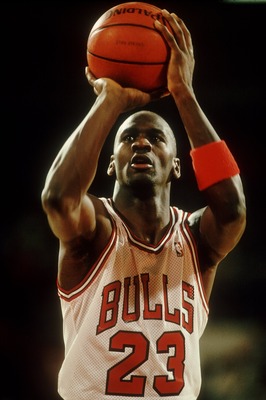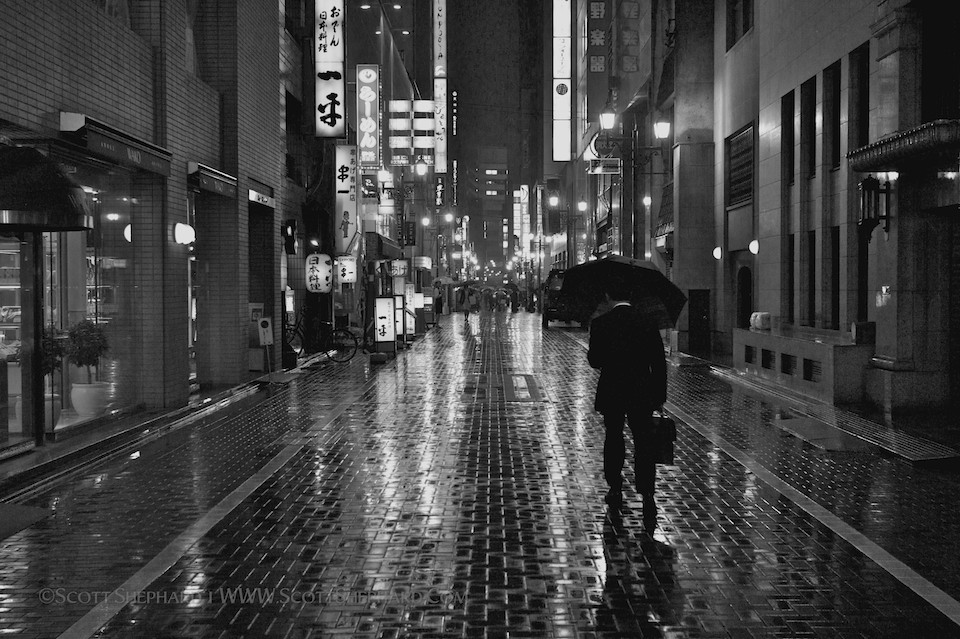Today's backstage pass talks a little bit about the process that resulted in this photo, which was featured on the Photo A Day Blog. Enjoy
Time Management for Photographers (by Kevin Kubota)
I just came across a great video about how distractions can get in the way. This video complements what I said a few days ago in my "Time Management" post.
Color or Black & White?
All digital cameras shoot in a color mode known as RGB and are tuned to capture and show color the way the human eye does. But cameras and software also have the capacity to take or make black and white images. And the question I get from time to time is, "Why shoot in black and white?" It's a good question that isn't always easily answered. And perhaps the first pair of photos exemplifies the challenge of doing the right thing.
2013 02-04 A Favorite Color
The color version of Megan is one of my favorite portraits. Her red hair complements her dark green sweater perfectly. And, of course, her radiant smile and eyes don't hurt.
2013 02-04 A Favorite
In the black and white version Megan's eyes and smile remain, but I've taken the color away. And the photo has a different impact. In this case, I'm not sure if the change is good or bad. So the choice here is a somewhat complicated aesthetic one. You be the judge.
Sometimes, however, a black and white conversion is important because it helps shift the viewer's focus. Consider Jessica's portrait:
Screen Shot 2013-02-06 at 6.16.08 AM
In the color portrait, I didn't like the way my eye was drawn away from Jessica's beautiful face and eyes to the blue necklace and the light blue top she was wearing. And so I converted to black and white. There is still an aesthetic choice that needed to be made but for me it is easier to accept that the b&w version is better.
Consider one more example:
_G9S3139 - Version 3
_G9S3139
This was a photo that I took in Tokyo on a less than perfect rainy night but when this solitary man walked into view, I knew I had a potentially good photo. I will say that the color version is interesting, especially in how the color is reflected in the wet pavement. But my subject is the businessman in the foreground and I think the black and white version does a better job of focusing attention him. Thus, for me, this one that ended up being published in black and white.
In closing, I would say that some of my decision making is driven by my age: I grew up taking black and white photos. Also my role models were people like Karsh and Weston and Adams. And they all shot in black and white.
I'd love to know what you think. All you have to do is type in the "Comments" box at the bottom of the page. :-)
Time Management
If you spend much time learning about people who have become successful, you will learn that for the most part they were excellent time managers and profoundly disciplined in how they lived their lives. One illustration of this is Charles Darwin, whom I realize was not an artist. But he did make a name for himself. The February, 2013, edition of Smithsonian says this about life in the Darwin household:
"Life here went on like clockwork because Darwin made it so. Every hour of his day was scheduled to roughly the same pattern for 40 years: a walk before breakfast, then work from 8 a.m. to midday, with a pause in mid-morning to listen to Emma read novels or family letters aloud. He went for a walk with his dog before lunch, the family’s main meal, at 1 o’clock. Then he read the newspaper, wrote letters or read until 3 o’clock, then rested, working again from 4:30 to 5:30. A simple dinner was served at 7:30, after which he played backgammon with Emma or billiards with his children or listened to Emma play the piano."

Another person who made a bit of a name for himself was Michael Jordan, the basketball player. He once said, "People who think that what I do is easy don't know how hard I work at it." Jordan worked especially hard on his free throw shooting and 7300 of the 32000 points he scored during his career came from this aspect of his game. Jordan worked hard at this relatively unglamorous task because he knew that basketball games are often won 1 point at a time.
What can photographers learn from Charles Darwin and Michael Jordan? In short that discipline, hard work and routines help smooth the path to success.
In a brilliant little book Steal Like An Artist, the author, Austin Kleon, has two short chapters titled "Get Yourself A Calendar" and "keep a Logbook." He says that artists need to work especially hard at keeping track of their time because that isn't a native skill. I have many imperfections when it comes to discipline and time management but I know that the routines I have carved out have helped me survive as a teacher and are essential in my quest to be a better photographer.
Backstage Pass: Christmas In January
To see the full size version, hover over the bottom right corner of the video as it plays and click on the YouTube icon when it shows up. This will take you to YouTube. Do you want to subscribe to this as a podcast? Go here (click) and click on the iTunes icon towards the upper right.
Welcome To "The Better Photography" Blog!
Hi! Thanks for taking the time to visit my new blog. Those who know me might know that I have another blog called "A Photo A Day" that I've been publishing for several years. So why am I starting yet another blog? I guess the answer is that as a photography teacher, I spend a considerable amount of time figuring out how to translate what I have learned over the last 30 years into something that makes sense to my students. And a year ago I thought: Why not try to share some of what I know and do with the rest of the world? So a year later, here goes. . .
Yes, there are thousands of other "How-To" photo blogs in the blogoshere and the challenge for me is to offer something that you might not be able to get somewhere else. That's a tall order.
However, I will say that when I started "A Photo A Day" in 2009, I figured that even if no one read it, it would be good for me to do it because it would force me to find my best photos and then, in the process of creating a blog post, analyze the thoughts and techniques that went into the photo. That blog has helped me become a better photographer.
So maybe this blog will do the same for me. But, of course, I'd like to think that this blog will be more about you and the conversation we might have about something we love: photography.
Topics covered in this blog will include:
- Equipment
- Composition
- Software processes
- The History of Photography
- And things I haven't even thought of
So come back often. Even better, why not subscribe to my blog?
Scott S.










